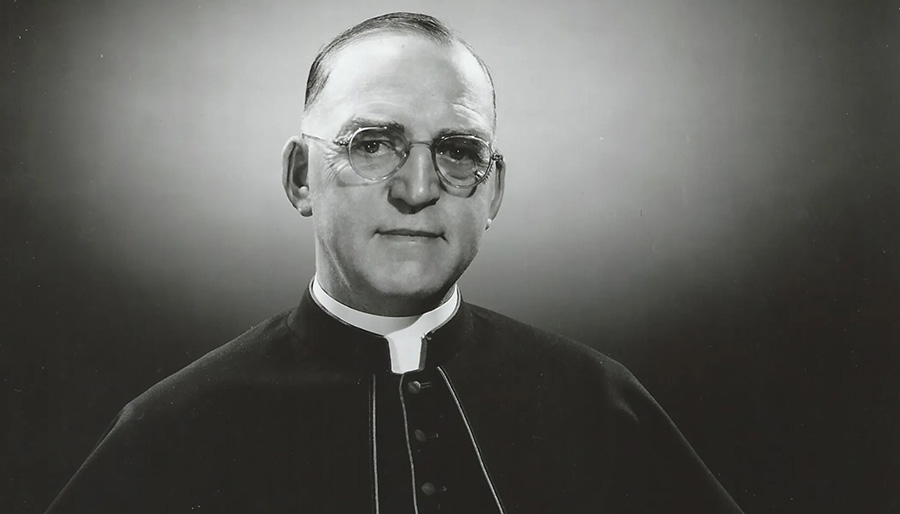Francesca Pollio Fenton
Catholic News Agency
Many are familiar with the story of Father Edward J. Flanagan from the 1938 Oscar-winning film “Boys Town” starring Spencer Tracy. Now a new documentary on the famous priest promises a deeper look into Flanagan’s life when it hits theaters for one night only on Oct. 8.
“Heart of a Servant: The Father Flanagan Story” documents Flanagan’s unwavering commitment to caring for abandoned and orphaned youth starting from the Great Depression to after World War II, all while defying racist laws in order to serve the most vulnerable and give them hope for a future. The film covers a range of topics, from Flanagan’s health issues to his immigrating to the United States to his founding of Boys Town, Nebraska.
The feature-length documentary was produced by Spirit Juice Studios in partnership with the Father Flanagan League and filmed on location in Ireland, Germany, Austria, Japan, and throughout the United States. It also includes expert commentary from Steve Wolf, vice postulator for the cause of Flanagan’s beatification and canonization, as well as Deacon Omar F.A. Gutierrez, Father Ryan Lewis, and Ed Flanagan, the great-nephew of Flanagan, among others. The film is narrated by popular Catholic actor Jonathan Roumie, known for his role as Jesus Christ in “The Chosen.”
Rob Kaczmark, co-director and executive producer of the film, and producer Victoria McEachern spoke to CNA about their experience working on the project as well as how Flanagan has impacted them personally and what they hope viewers will take away from his inspiring story.
McEachern pointed out that while a lot of the bigger topics of Flanagan’s life are very well known, it was the “smaller moments” that she learned while making the film that really stood out to her and gives the documentary more depth.
“For me it was those little, quiet moments,” she shared. “Father Flanagan was this big personality who was incredibly well known and he was also a very quiet, holy, giving, generous man.”
She added that there’s also a lot we can continue to learn from Flanagan — especially when it comes to injustices we face in society today.
“He was really ahead of his time in speaking out against issues of segregation and racial justice,” McEachern said. “To recognize how he stood on situations like that in the past really informs even now how we deal with injustices of our days.”
Kaczmark added that Flanagan serves as a “strong example of calling people to be a saint” and hopes that viewers will be inspired to “recognize the problems in the things in their own life and where God’s calling them to serve and to lead people.”
McEachern hopes viewers will be inspired “by the example of one man.”
“There’s so much going on in the world and in our small communities as well. And so to see the difference — and he did, he made like really tangible impacts in a lot of different areas — to see the difference that he made and that he was so selfless in it and that ultimately it started in the chapel every morning and with the person right in front of him,” McEachern said.
When asked what they believe Flanagan would do today when facing the inequalities prevalent in our society, McEachern said she believes he would “continue to push for the person right in front of him. He would continue to see the need in front of him and encourage all of us, and he would say to do something about it even if it was risky.”
Kaczmark added: “I think he would gently invite them to sainthood, to Christ, at the same time still serving them. And I think that’s what we’re called to do as Christians, as Catholics — is to serve those in front of us and to point people back to Christ. We’re not the savior of it, we’re Christ’s hands and feet on the earth ultimately pointing people back to heaven.”

The official portrait of Monsignor Edward J. Flanagan circa 1940. Credit: Spirit Juice Studios (Courtesy of Catholic News Agency)
